The story goes: first, I begin a new show (usually one that has been on my list for eons). This month’s show: Jane the Virgin (JTV). Step two, I like it. Then, I am unable to stop, all my free time now belongs to This Show. Of course, my obsessive nature has taken over by this point, and I become fixated on That One Character. This month’s, Petra Solano.
SPOILER WARNING: This article contains spoilers through all of season 4 of Jane the Virgin.
Now, JTV is not a without its flaws, but it is packed with charismatic, flawed-yet-lovable characters. I have distinct obsessions with many of them for different reasons. Jane certainly is a good protagonist, a character who really carries the story. There’s Rogelio de la Vega, with his lack of chill and poor social skills. Xiomara as the fierce mom who screws up constantly but is incessantly selfless. I have a soft spot for Luisa and even the serial killer Rose (a.k.a. Sin Rostro).
And Alba Villanueva is queen of my heart. She calls to me on a cellular level because she’s such a realistic doting but strict catholic Latina grandma. It’s a kind portrayal, but not rose-tinted; she has the great qualities a good abuelita has, but she also has the bad ones. She’s someone I know (many times over), and that is not something I see a lot on television. My love for her and the layers to her character warrant an article all on its own. Coming soon.
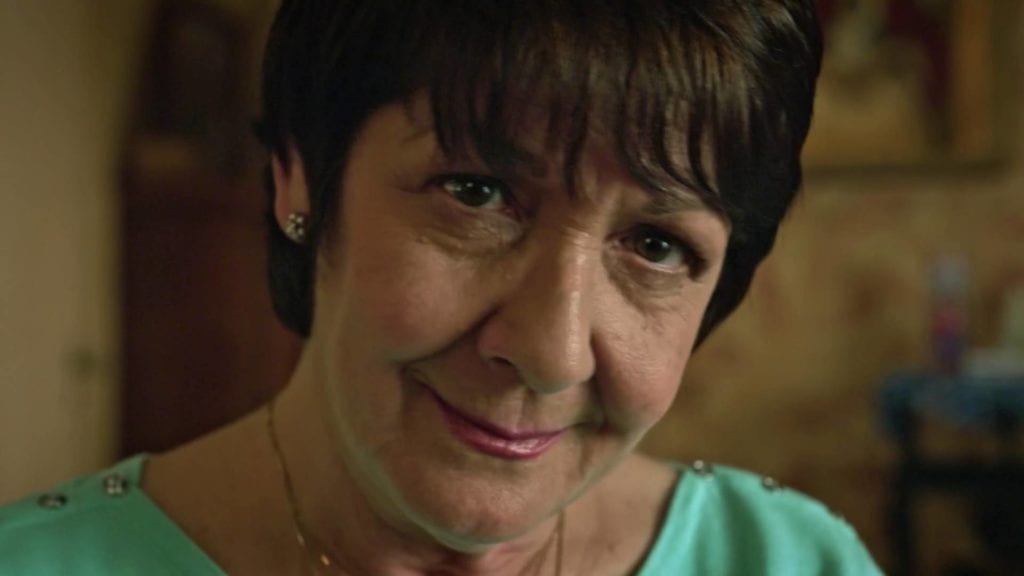
But my attention was most caught by Petra, to the point where by mid-season two, she was unequivocally my favorite. This was unsurprising for me, because I soon recognized her type. It’s not the first time I notice a pattern in these characters I—and many other people, if Tumblr is to be believed—gravitate to. What exactly is that type? Well, I’ll try to define it as best I can here.
The Type A Hot Mess
Blair Waldorf (Gossip Girl), Caroline Forbes (The Vampire Diaries), Rebecca Bunch (Crazy Ex-Girlfriend), to a degree Annalise Keating (How to Get Away With Murder), and of course, Petra Solano, all have something in common. They are Type A personalities who give off the Stone Cold B-Word vibe who are secretly scared. They are often villified in and out of universe. They are women who want their lives to be some version of picture perfect, control freaks who will stop at nothing to try and make sure that happens, even if everything is burning inside.

They want it so badly that they often go too far to try to get it, scheming and going behind people’s backs and even venturing into the criminal. But they also always fail, miserably. Because everything is burning inside (see: Carol). In other words, they are a hot mess.
This tendency to try to control the situation instead of managing or even acknowledging their feelings stems from a deep-rooted insecurity and the firm belief that no one will love them they will never be happy unless they are perfect, and/or on top of the world. This tends to come from their (often abusive) upbringing.
The shows these girls are in usually present a more “virtuous” counterpart that this Hot Mess will feel Always Second Best to. A “Madonna to their Whore“. A Serena to their Blair, a Jane to their Petra, a Margaery or Sansa or Lyanna to their Carol, and in a trope-breaking twist, a Valencia to their Rebecca. Of course, there is a character who gets to do the choosing. It is most often a man, which is an issue all on its own that I will not go into in this article.
Our Hot Mess desperately wants to be first choice, and they will try so hard, but they keep failing, and they will keep failing because
- their methods are crap,
- this person who doesn’t choose them will never choose them, through no fault of their own, and
- their idea of perfection is an illusion and will never make them happy.
Cheesy as it sounds, what they need is love—for themselves, first and foremost. And the only way to get it is if they are willing to change their ways and open up to the people around them. They need for somebody to show them some compassion. This is something that will be hard to come by when they don’t let anyone through their hard shell into their mushy interior, and keep resorting to cruelty if someone sneaks a peek.
These characters often described as those “we love to hate”, have a unique position in the narrative. They are often free from the confines of being a force for good that the protagonist usually sticks to. They get to have many, many more flaws. They have the most chance to grow.
So, why do we fall in love with them? To the point of being fiercely protective of them and say things like “I just want her to be happy!”. I will break down the particular case of my latest Type A Hot Mess obsession.
Petra Solano, Man-Eater
I will assume anyone who ventures this far into this article has read the spoiler warning and is either caught up or does not care for spoilers, but you should know JTV has a subjective voice over narrator who makes on-screen annotations.
Petra is first introduced in the series pilot as the Gold Digger, cheating wife of Rafael Solano, the clear male protagonist and future love interest to the title character, Jane. The show’s narrator’s helpful annotations make it clear what we are meant to think of her in the beginning.
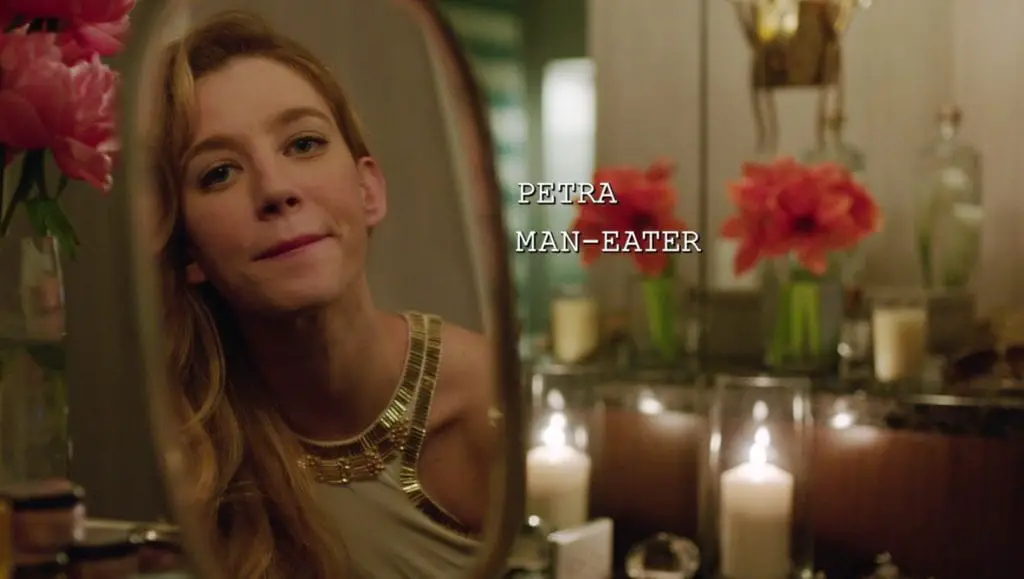
Our first impression of Petra is of a woman set on trapping her husband for as long as it takes to get as much money as possible. For this purpose, she decides to unfreeze her husband’s last sperm sample (after cancer) and inseminate herself without his consent. She’s also cheating on Rafael with his best friend. Yikes.
Petra seems like a typical one-note telenovela villain: obsessed with money, or a man or both, her world centering on destroying the life of the saintly protagonist. A lot of this is true for Petra, especially in the first half of season one, but soon enough, her layers are revealed to expose a vulnerable center.
In The Art of Dramatic Writing Lajos Egri says that it is not enough to know if a character is good or bad, “you must know why”.
Natalia Plays Violin on the Streets
(Or Petra’s Tragic Backstory)
As any villain who respects themselves, Petra has her own sob story.
Petra’s manipulative mother makes an appearance since the pilot. The more we see Madga and how she treats her daughter, the more we can understand how Petra became someone who would artificially inseminate herself with her husband’s sperm for money, and later for a twisted idea of love. Petra is clearly caught in a cycle of abuse with her mother. Madga has Petra convinced that they only have each other, and that she is unlovable to anybody else.
In season one, Petra and her mother cook up a series of nefarious plots to take Rafael’s money, seemingly out of pure greed. However, as it is revealed Petra is not who she says she is, we also find out why Petra is so desperate for money. Her name is Natalia, and she escaped the Czech Republic by taking on a new identity to get away from an abusive ex-boyfriend, Milos, who threw acid at her mother and caused her paraplegia. The man who helped her escape is blackmailing her for money.
“I know, straight out of a telenovela, right?” —The Narrator.
She lived in poverty in Czech Republic, playing violin on the streets for money, something that was clearly traumatic for her. Magda sees her daughter as her ticket out of poverty forever and has no qualms about using her. She goes so far as to hit her in the face and pretend she was paraplegic for years to guilt Petra into doing her bidding. Double yikes.
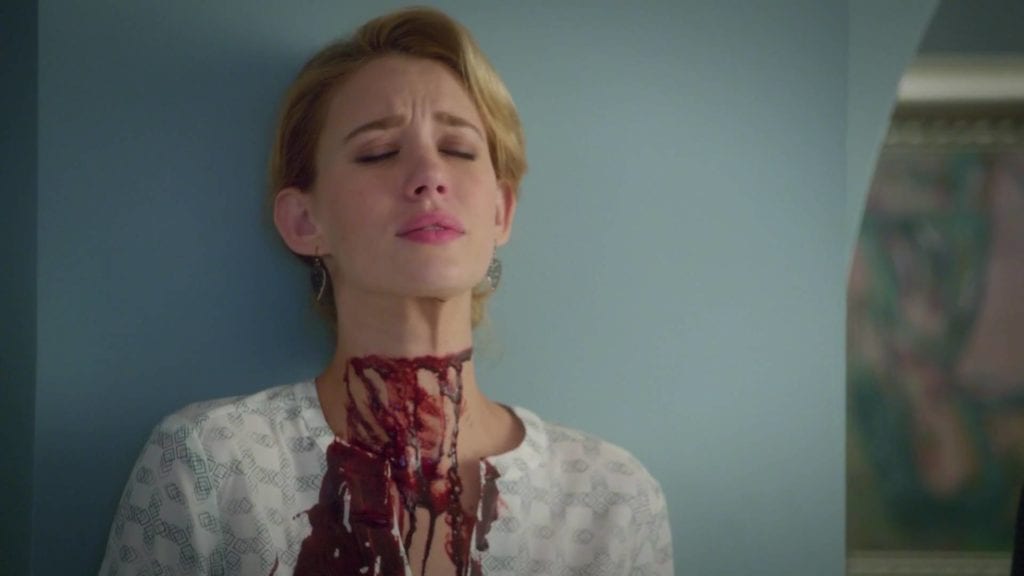
Once in the U.S., Petra got engaged to Lachlan, Rafael’s rival for his father’s approval. Rafael successfully “stole” Petra from Lachlan, and they got married soon after. There seems to have been true love in their marriage, but after a late term miscarriage and Rafael’s cancer, things changed; Rafael pulled away, and Petra started cheating.
The ways Petra has to cope she learned from her mother, so when she feels things are getting out of her grasp, she lies, she steals, she manipulates. She threatens to claim Mateo’s custody in season one, inseminates herself with her husband’s sperm in season two, for real this time, and accidentally kidnaps a man, just to name a few.
Now, these are terrible, terrible things to do, no matter how many fans on Tumblr jokingly declare she’s a pure angel who needs protection. She’s not. There is no justifying Petra’s bad behavior throughout the series. But that doesn’t mean we can’t understand the root of her decisions. Egri says in his book that people—all people, real and fictional—really only want to feel important. Petra wants to be loved; by her mother, by Rafael, later by her daughters, and then even by Jane Villanueva herself. Her road to earn that love, an honest kind, is a long, arduous one, but it is not unattainable.
“But her crimes are too extreme”, you say. Well. The thought crossed my mind while writing this, but then I realized.
Framing Is Everything
Jane The Virgin is a loose adaptation of a Venezuelan telenovela (Juana la virgen), and the show is simultaneously a parody, an homage, and an actual telenovela of sorts. Its plots include secret identities, cover-up murder, accidental murder, organized crime, long-lost evil twins, and even villains with huge scars and eyepatches who pretend to be paraplegic. It should also be noted that two out of six of those over the top twists, four are in Petra’s storyline.
Despite JTV’s flare for the dramatic, Jane’s story remains pretty grounded. The issues she is directly involved in are mostly about family, motherhood, career and love, while all of the crazy stuff—like murder and blackmail and money laundering—happens pretty much in her periphery. Yet the crazy stuff is one of the staples of the show.
Jane is the lead, the hero of the story, and so there is a tight limit to how far into the “dark side” she can go. Alba, Rogelio and Xiomara are also a bit in the no-touch zone, perhaps because of the audience’s love for them, but on a Doylist level, the writers have put them in the incorruptible category, whether it’s purposeful or not. Rafael has a bit more leeway, but he can never go so far that Jane would think of him as evil. Now that Michael is gone (or is he?), Luisa is benched for a while, and with Rose as the cackling villain, that only leaves Petra for the most insane plotlines.
Petra is one of the only characters left who is allowed to make decisions going in with bad intention. Petra alone has cheated, stolen, blackmailed, been kidnapped twice, she has moved corpses through boundary lines, helped her mother cover up a murder, killed in self-defense, gone to prison twice, and now also killed intentionally, even if it was to protect her daughters. Not only that, but the stakes are usually sky high for Petra: losing her mother, losing her home, being found by an abuser, going to prison, her life, her daughter’s lives. She stands to lose a lot, every time.
She was paralyzed by her twin sister for three months, for Pete’s sake!

The nature of the narrative and the unwillingness to touch other characters more or less forces Petra into these things because she’s the only one who can fill this role. But the show also sets a tone where this is framed as funny, and this sort of “protects” Petra.
Framing is everything, and Jane the Virgin’s allow for these things to happen and the characters to move past them. The narrative’s stance could not be clearer given the fact that there is constant comment from the narrator, who is self-admittedly biased. Jane-biased. His, and the other characters’ gradual warming to Petra, guides the audience through theirs (ours). It’s part of the suspension of disbelief the show asks for.
Now that that’s out of the way we can get down to business.
Bad Actions Do Not A Bad Person Make
(Or The Redemption of Petra Solano)
Petra, as it turns out, has many redeemable qualities that make her relatable. For starters, she’s funny. Not to herself of course. She takes everything extremely seriously, but the situations she’s in are still bonkers. I’m sure there’s a blog out there I haven’t found solely dedicated to the incredible faces she makes.

It’s endearing.
Apart from that, she is shown to be capable of great love, as we see in the flashbacks to her relationship with Rafael and Milos, and later with her daughters. She can be sincerely loving if and when she chooses to be vulnerable with someone. She is gullible. She is insecure, and also extremely lonely.
It is my turn to admit I am a sucker for angst.
Petra’s Angst
We know Petra had a late-term miscarriage, which is a traumatic experience. And later Jane showed up and, in a sense, replaced that baby boy she was meant to have with Rafael (she didn’t, but feelings don’t ask permission to go there). Later, when she had the twins in season two, she suffered post-partum depression, which turns out runs in her family. Magda probably didn’t have access to any sort of treatment for it. This doesn’t excuse the way she treated Petra, of course. And it evidently has given our Hot Mess some serious mommy issues.
Petra was a victim of abuse. Magda taught her that they only have themselves. No one will understand, no one will forgive, no one will love her. This keeps Petra coming back to her mother, even when knows her to be lying and manipulative. And even after she’s able to banish Magda from her life, she still cannot shake that way of thinking.
The lie is so deeply ingrained to Petra’s core that her instinct is to fix things herself and suffer in silence. In season one, she could have come clean to Rafael about her identity and the money, and he eventually would have helped her—because as much of a douche he can be, he has a conscience (a.k.a. Jane). In season two, she outright refuses Jane’s help with the Milos situation, and she reacts poorly when Jane tries suggests getting help with her post-partum depression. She does not know how to ask for or accept affection. She is always surprised, nay, bewildered when she is on the receiving end of it, even now in season four, after she’s come so far.
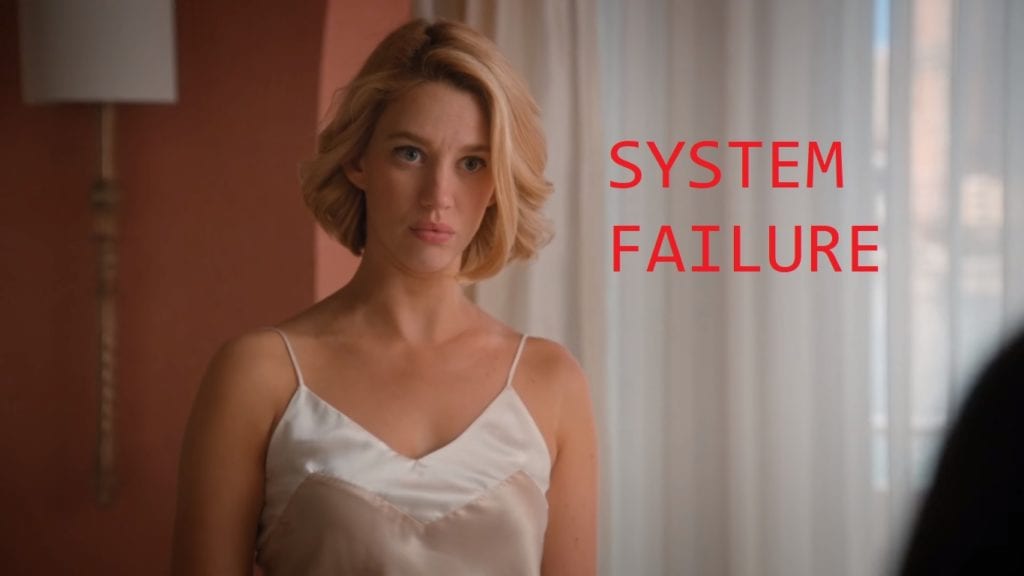
The result is that Petra truly is alone for a long time. No one noticed she has a guy tied up in her room in season one, no one realized she was missing when she was kidnapped by Roman Zazo in late season one. Again, she was paralyzed and conscious for three months watching her sister Anezka take over her life and no one took notice! For three months!
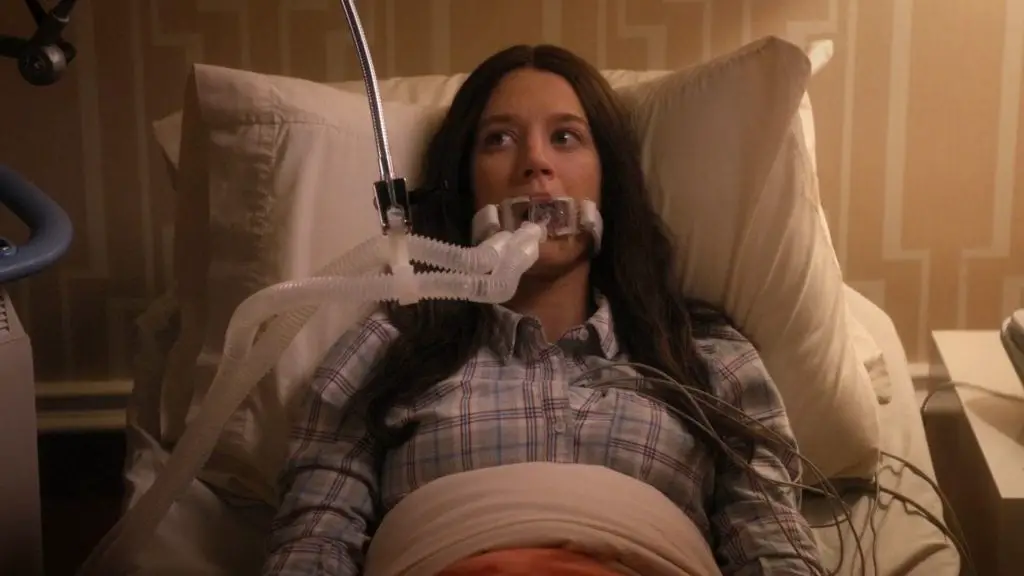
That is nothing short of tragic. Nobody deserves that.
It’s very difficult to watch at times, privy as we are to Petra’s motivations. The more insight we get into her point of view, especially seeing her alone, the more we understand her, her way of thinking and her limitations when it comes to emotional outreach. So we know she has it in her. It is torture to watch her almost do the right thing and instead retreat back into her shell.
Remember when she asked Jane out on a lunch date, and she was so happy about it she was practically skipping to her room? Only when she got her, she found Magda had murdered a man and coerced her into helping her cover it up. That moment after she is forced to tell Jane off and stares longingly at the friendship she could have had is enough to break any heart.

Don’t Support the Villain, Support Growth
It’s not really that we’re rooting for her to succeed in her ill-advised pursuits, it’s that we’re rooting for her to make the right decision this time around…or I am anyway. And she wants to. Petra is concerned with being “good” post-season one, and even seeks reassurance on it more than once; from Rafael, from Jane and later JR. It’s been made clear Petra is not a bad person, not in her core.
I believe the moment Petra’s true nature is clarified for good is way back in season one, chapter 12. Petra, who has just discovered that her ex Milos is back, is having a good cry in a stairwell. Jane finds her, because of course. Being Jane, she decides to comfort Petra despite her better judgement. Petra turns Jane away, and tells her she knows she doesn’t deserve Jane’s comfort.

Petra knows she is the villain here, and she has willingly taken that mantle at this point. Maybe she doesn’t want to be the bad guy anymore, maybe she never wanted to. But she probably believes no one can ever forgive her. We can’t really blame the other characters for not wanting anything to do with Petra. They don’t have all the information we do. Of course Jane being Jane is the only one who would give her a chance and try to understand. Because of course she is.
Always Second Best
Ironically for Petra, Jane alone has the capacity and willingness to show her the compassion she needs. Jane is the person Petra is constantly compared to, and subsequently feels inferior to, second best to. Jane is also her salvation. Life is funny like that.
Always Second Best is a trope so relatable that it has been a subject of storytelling since storytelling began. I believe it’s safe to assume nearly every human being who has spent a few years on Earth knows what it is to feel second best to someone else. It sucks.
Every other element of Petra’s storyline plays a role in how we relate to her and learn to love her. But I believe this trope trumps all of them combined. Characters like Petra wake a base instinct to protect the person who is being relegated (us) and resent the person they are being relegated for (Jane).
In Jane the Virgin it helps that Jane is this ray of sunshine, powerful force for good. She never means to hurt anyone. She makes only honest mistakes. She is good and kind and hard-working and compassionate. She is “basically a perfect human being”. Petra’s words, not mine.
This is not an anti-Jane sentiment; I like Jane. I think she is a strong protagonist. If her story and character weren’t compelling, this show would have fallen to the ground a long time ago. However, Jane-ness seems rather unattainable for a human being, especially a Petra human being.
Petra learns to stop seeing Jane as competition and more as aspirational. She is surprisingly the first to admit to like Jane and want a friendship with her, and even admits to valuing Jane’s opinion of her.
The strong attachment we form to Petra makes all her progress to feel personal, like we achieved something. Like yes, we were right to root for her, we knew she could do it.
The Lower We Fall The Farther We Rise
As I mentioned at the beginning, one of the great things about these characters is that starting from the bottom means they have the most chance to grow.
Jane has like, two real character flaws total (three, tops), so she has had little change since the show began. And that is not a bad thing. According to Egri, protagonists don’t necessarily need to be the ones who change the most in a story. They ought to develop, yes but most importantly they need to be driving the story. Other characters get more room to shift around.
Petra is arguably the character who has most evolved through the course of the story. We see her actively struggling against her baser instincts (and still falling prey to them once in a while) but always striving to be better. Nowadays she asks for forgiveness, she shares her feelings, and when she makes a mistake that hurts someone, it’s usually not intentional. She’s in with the top crew, guys!
Her evolution was so slow and organic. There is no questioning it. It is so satisfying to see her defeating her old demons. It’s like a personal victory when she seeks help for her depression instead of running away. Or when she tells Rafael about her PTSD (after a little stumble with her old ways). I yelled out when she breaks it off with Rafael for good, realizing she needs a fresh start free of their history. I mean, the woman cried because Jane was mad at her, and dressed up as a tooth fairy to cheer up Mateo. She has come so far!
I am obsessed with a recent moment that came out while I was writing this, were Jane and Petra express their love for each other out loud. It was a beautiful moment of friendship between two very different women who’ve seen each other through some tough moments and I admit it got me more than any romantic “I love you” in the show.


Whoever says that it’s all fair game when it comes to character empathy is lying. We all have bias, always, when it comes to fiction. There are things we relate to more than others, and characters we get attached to. The more time we spend with them, the more we understand them and love them. We see them grow, we root for them to succeed and find happiness. And hell, I think Petra’s is one of the most satisfying character journeys I’ve gotten to watch so far.
Also her hair. It is fabulous.

